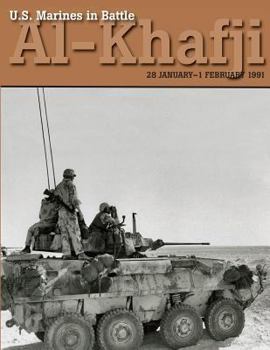U.S. Marines in Battle Al-Khafji: 28 January - 1 February 1991
In August 1990, Iraqi military forces invaded the neighboring nation of Kuwait. The invasion was part of an expansionist foreign policy that President Saddam Hussein established a decade earlier when he invaded post-revolution Iran. The Iraqi invasion of Iran failed, degenerating into a decade long war of attrition, but Kuwait was an easier target. Kuwait had financed the Iraq-Iran War for Iraq, but refused to forgive the debt, and Iraq accused Kuwait of stealing oil from the Rumalia Oil Field. Much smaller than Iran in terms of population and geography, Kuwait had focused its foreign and defense policies on negotiation and compromise rather than military force; inevitably, the large Iraqi Army quickly overwhelmed the small Kuwaiti armed forces. Inside Kuwait, Iraqi troops began wholesale pillaging as security forces moved to remove all those loyal to the Kuwaiti royal family. Iraq declared that Kuwait was now a province, thus eliminating its debt and adding extensive oil fields to its own. Saddam stationed conscript infantry divisions in Kuwait and began building extensive defenses along the Kuwaiti-Saudi border. While Saddam calculated the military balance between Iraq and Kuwait correctly, he underestimated the willingness of the world community, especially the United States and Great Britain, to intervene on Kuwait's behalf. His invasion set the stage for a military confrontation that was larger in scope than any similar circumstance since the Cold War. Under President George H.W. Bush, the United States assembled a global coalition of concerned nations, first to defend Saudi Arabia against further Iraqi aggression, and then to eject the Iraqi military from Kuwait. Early in this "Gulf War" American military commanders designated the operation to protect Saudi Arabia "Desert Shield," and the successive operation to free Kuwait "Desert Storm." These military operations were massive undertakings, and they highlighted the paradigm shift from superpowers in precarious equilibrium during the Cold War to American global hegemony in the 1990s.
Format:Paperback
Language:English
ISBN:1475059809
ISBN13:9781475059809
Release Date:December 2008
Publisher:Createspace Independent Publishing Platform
Length:40 Pages
Weight:0.26 lbs.
Dimensions:0.1" x 8.5" x 11.0"
Related Subjects
HistoryCustomer Reviews
0 rating





